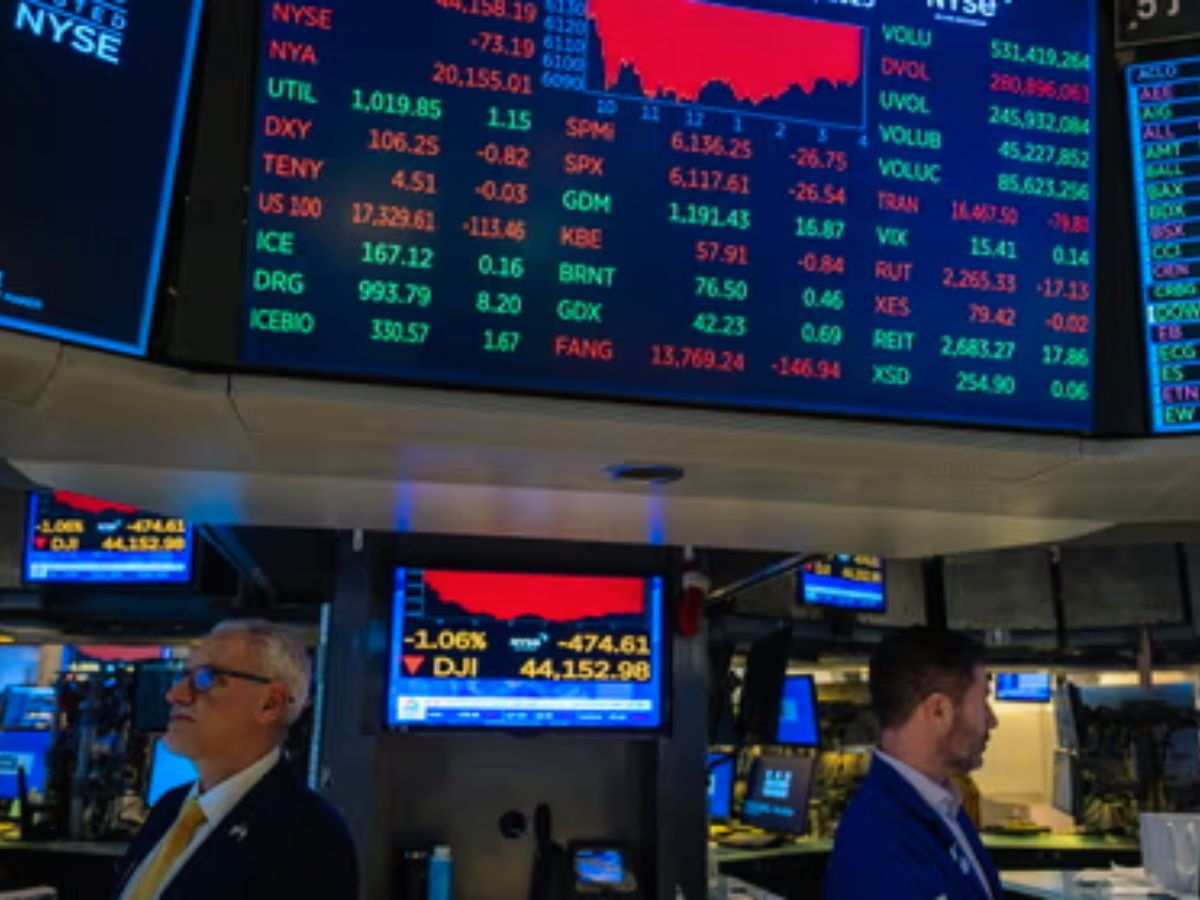U.S. stocks fell sharply Friday as Iran fired hundreds of missiles at Israel in retaliation for Israeli airstrikes, escalating Middle East tensions. The Dow dropped 868 points, while oil prices surged amid fears of a broader regional conflict.

U.S. stock markets tumbled sharply on Friday following a dramatic escalation in Middle East tensions, as Iran launched a barrage of ballistic missiles toward Israel in retaliation for Israeli airstrikes earlier that morning. The heightened geopolitical unrest triggered a sell-off on Wall Street, raising investor fears of a broader regional conflict and its potential global economic fallout.
The Dow Jones Industrial Average fell 868 points, or 2%, marking one of its steepest single-day drops in recent months. The S&P 500 dropped 1.2%, while the tech-heavy Nasdaq Composite slid 1.4% by early afternoon. The sharp decline in stocks reflects growing investor anxiety over rising hostilities between two of the Middle East’s most powerful nations.
According to Iran’s state-run news agency IRNA, the missile attack is part of a “crushing response” to Israeli strikes earlier in the day that targeted Iran’s nuclear facilities and senior military officials. Iranian officials claimed they had fired “hundreds of various ballistic missiles” at targets in central Israel, including areas near Tel Aviv and the city of Ramat Gan.
ALSO READ: 7 Injured As Iranian Missile Strike Hits Near Tel Aviv And Ramat Gan
Israeli emergency services reported that at least seven people were injured ranging from light to moderate in the missile strikes. Explosions were heard across central Israel, with buildings shaking and civilians scrambling for shelter. In response, Israeli police have deployed tactical units and emergency squads across the country and warned the public to stay away from missile impact zones.
Michael Oren, former Israeli Ambassador to the United States, told CNN that his building “shook not a little bit” and he received advanced warning on his phone before taking shelter with his family in a safe room. The strikes, he said, mark a “turning point” in the regional conflict.
The retaliatory missile barrage has sparked intense concerns on Wall Street that the conflict could expand further, potentially disrupting oil supplies and triggering economic instability. As a result, investors have pulled out of riskier assets, leading to broad market declines.
“The sell-off we’re seeing today is a direct response to the escalation in the Middle East,” said Jamie Cox, managing partner at Harris Financial Group. “Markets are reacting to the uncertainty of what comes next especially how this could affect global energy markets and inflation.”
Energy stocks were among the few sectors to gain ground on Friday, buoyed by a sharp spike in oil prices. Global crude prices surged in one of the market’s biggest single-day jumps in years, reflecting fears of supply disruptions should the conflict spread to neighboring oil-producing countries or critical shipping routes like the Strait of Hormuz.
The missile exchange between Iran and Israel has not only unsettled U.S. markets but also rattled investors globally. European and Asian markets closed lower earlier in the day, anticipating the possibility of extended hostilities in the region.
The Biden administration has yet to issue a full statement on the attacks but has reportedly been in close contact with both Israeli and NATO allies. Analysts warn that a prolonged or escalated conflict could trigger wider military involvement and push global markets into deeper volatility.
“This is not just a local conflict anymore,” said geopolitical analyst Lina Farrow. “When two regional powers like Iran and Israel trade open fire, the risk of a larger war and its economic consequences becomes very real.”
As markets await further developments, investors are expected to remain cautious, with volatility likely to persist in the coming days. The U.S. Federal Reserve is also closely watching the situation, particularly its potential to impact inflation through higher oil prices.
For now, Wall Street is bracing for further turbulence as geopolitical risk takes center stage. The market’s sharp reaction underscores how global conflict can swiftly unsettle financial systems, even half a world away.
ALSO READ: Iran Launches Over 150 Ballistic Missiles Towards Israel